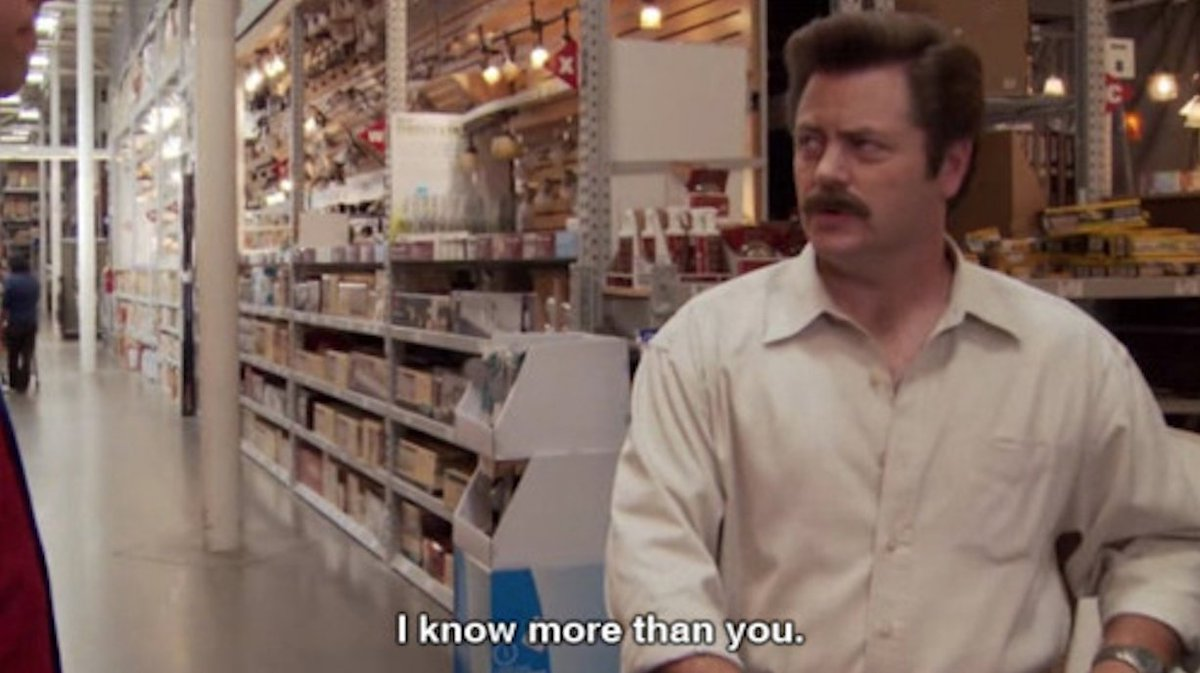.jpg?width=1029&height=514&name=Featured%20image_%201100x550px%20(59).jpg)
Have you ever had a discussion where everyone agrees with you? Maybe in a group on some social medium, especially dedicated to agreeing on something? That’s how most social groups are formed, after all. It’s even an important evolutionary trait. Low social friction is vital to a group’s survival. We need to agree on certain things.
Groups built based on people agreeing are commonly called “echo chambers”. They are where innovation goes to die.
It’s where your beliefs are never challenged, and therefore never have the opportunity to grow. Intellectual friction is mistaken for social friction, and contradictory ideas are repressed or shut out.
And if there is one place we don’t want to be shut out from, it’s the marketplace. We therefore often treat the market as one of those groups, scared to be punishable by excommunication by saying: The Customer Is Always Right.
Some businesses even codify those words, including them in their onboarding manuals. “Don’t let your opinion or your pride turn away a potential client.”

Finding the root cause
This makes us no better than the swindlers coming to sew clothes for the emperor from invisible thread. We don’t swindle them on purpose, but the result is the same: The clients will show their naked butts in public. They will parade their new and shiny, but empty design around, while clients stay away due to UX issues. The most modern of CMS-es won’t convert if the problem is with their Google Ads strategy. Or: Doesn’t matter if the site is shiny if it won’t scale with your plans and ambitions.
And that is the core of the message: Without knowing the root causes of the client’s problems, we can’t in good conscience start working on the solution.
Our goal is to make our clients shine. When they go out and present their offerings in the marketplace, they will look like they invented the internet, or so help us god. And so building a WordPress site because they requested it will sometimes be contrary to that commitment.
What are their reasons for wanting WordPress over Drupal or even Webflow? What are the goals of their website? Do they even need a new website to begin with..?
Yeah, sometimes asking these questions will result in us and our potential client parting ways. The truth can be difficult to hear. It might also lead to us realizing that the help that the client needs, lies outside of our current area of expertise. Or maybe our values just don’t match. But we have to be ok with that. We can’t disregard our earned expertise in order to make a quick buck.
The decision to ask potential (and current) clients tough questions hasn’t come without its cost, but the reward is even greater. When we ask them, we are more often than before invited to operate as strategic consultants instead of technical developers. This benefits both parties: The client because they are getting a higher level of expert guidance, and us because we get to do what we love: Being problem-solving machines for our clients and partners.

Questions to get us started
So how do we make sure that we are giving clients what they need and not necessarily what they want? I’ve already answered that question above: by asking questions. The qualification questions should all be aimed at finding out whether the client is a good fit for us, and vice versa.
What are your challenges?
Depending on how you got in touch with the client, this question should ideally be partly answered before the first interaction. Do you have any obvious needs which we would be able to handle? As a digital agency, we usually start off by doing short analyses of customer journeys on the client’s website: Am I able to perform the tasks I need to in different stages of the journey? Then we see how our findings compare to the requests the client puts forth.
What are your goals?
This is a question that people tend to dodge. When asking, we often see faces indicating uncertainty. They start to think, and the vague answer we often get is a red flag. It is not a problem, but it needs to be addressed before moving on.
If their reply is something like “we want to increase conversions on our site”, or “be digitally better than this competitor” we’re good to go. This shows us that they have the end goal in sight, and a shift in perspective might be easy. If the reply has something to do with “gaining visibility in the marketplace” or “get a new CMS”, well… It might still be worth it, but are you willing to re-evaluate your plans?
Do we share values?
Chemistry is important in a long-term relationship. Business and otherwise. We need to spend time together, talk about things unrelated to the problem we’re solving. Do our values match? Are we building mutual trust? Having an honest conversation centered around these things will really help in the long run. If the answer to any of these questions is no, we should reconsider working together.
Go forth and multiply (profits)
Once you’ve established that the client isn’t married to one particular solution, it’s time to start challenging the assumptions. We still have conversations, and we still ask questions. The goal is the same: rooting out the pain points and finding effective solutions which will help grow your client’s business. Through this mindset, we are fostering healthy, long-term relationships focused on getting the most out of the resources.
Thor Andre Gretland
Thor André is senior business advisor in Frontkom with 20+ years of experience working with web projects. Thor André is an expert in Wordpress and Drupal and was also chairmain of the board in Drupal Norge for some years. He writes about CMSs and how to leverage technology for business growth.